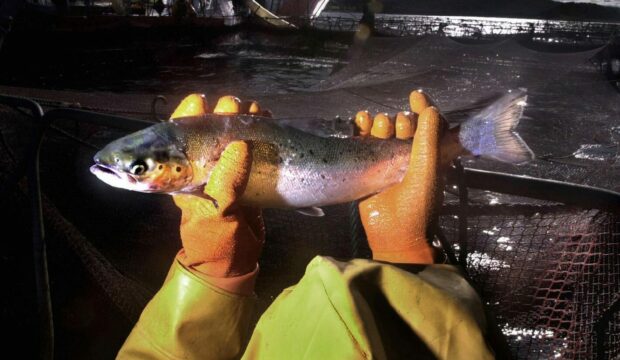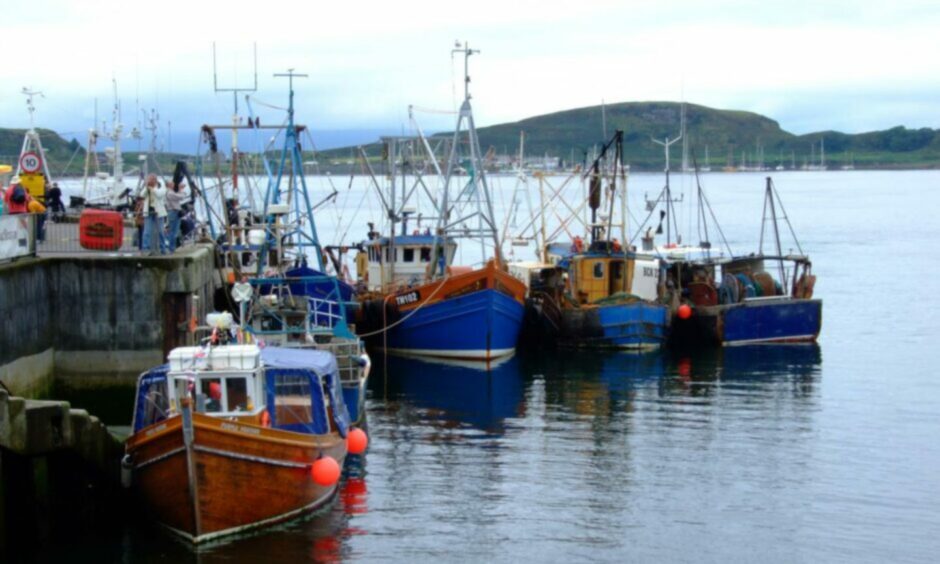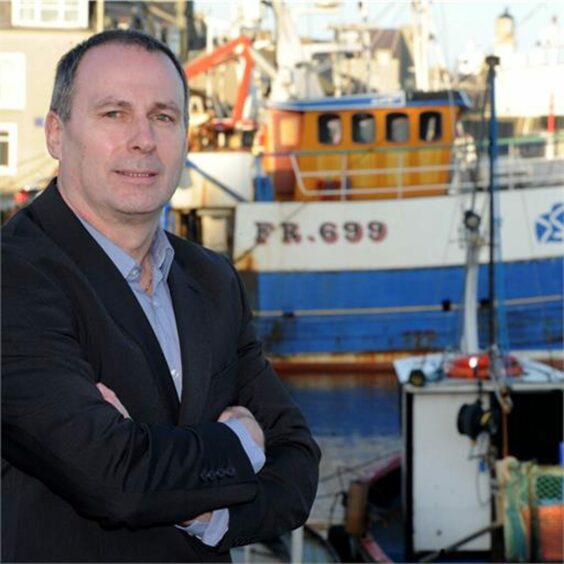Fishing leaders and MSPs are demanding the UK Government change immigration rules to avoid a crippling worker shortage in the sector.
The fresh pleas for reform were made after the Home Office delayed plans to tighten up restrictions on the visas most commonly used by non-European fishermen.
SNP ministers said they had been lobbying for a rethink from the Westminster government.
The Scottish White Fish Producers’ Association is urging the UK Government to overhaul its immigration regulations and class fishermen as skilled workers to make it easier for Scottish vessels to hire crew from overseas.
The Home Office delay has also prompted Rural Economy Secretary Mairi Gougeon to demand action.
Why do fishermen use transit visas?
Almost a fifth of fishermen working in Scotland come from outside the European Economic Area (EEA), predominantly from Ghana and The Philippines.
Many are able to do so by getting a transit visa, which allows them to travel to Scotland to board a vessel that will fish in international waters.
Scottish vessels are allowed to use transit visas to hire crew from outside the EEA as long as they are working “wholly or mainly” outside of UK territory, which is defined as more than 12 nautical miles from the shore.
However, the Ethical Trading Initiative has criticised the use of transit visas for fishermen, and has said it should be phased out.
It claims that because the visas require contracts to be made with one named vessel, fishermen on transit visas are unable to leave exploitative working environments.
Concerns were also raised earlier this year that migrant workers in Scotland were being abused and coerced under an “alpha male” culture at sea.
However, the UK Government wants to change immigration rules to ban those with transit visas from “all forms of activity within UK territorial waters and onshore”.
These changes were due to come into force on November 1, but have now been delayed until spring next year.
Call for fishing to be officially classed as ‘skilled’
Mike Park, chief executive of the Scottish White Fish Producers’ Association, based in Fraserburgh, said he wants to see fishermen able to come to Scotland on a skilled worker visa instead of a transit visa.
He said the industry has been using transit visas for decades because they cannot source enough seamen locally, but added there are negatives to doing this.
Mr Park said: “The delay to changing transit visas allows the fishing industry to find an alternative – and that would be hiring crew through skilled worker visas.
“But one of the big problems is that visa has an English requirement and the stark reality is getting fishermen through that exam is a real strain.
“It is too high level for them, but if fishing was to be classed as an industry with a labour shortage maybe that could be eased.”
Mr Park said the industry has set up a project in The Philippines to get workers through their English exams so they can get a visa to come and work in Scotland, and is also undertaking an overseas mission in Belize to hire English-speaking crew.
Visas should be tailored to Scottish needs
Mr Park’s call has been echoed by Alasdair Allan, SNP MSP for the Western Isles.
He said: “I make the argument fishing is a skilled job, because not everyone is able to do it.
“We have also made the case that visas need to be tailored to Scottish needs.
“The Scottish fishing industry represents two-thirds of the UK fishing industry, so while it might not be that big of a deal at a UK level, it is here in Scotland.”
Mairi Gougeon calls for change
Scotland’s Rural Economy Secretary Mairi Gougeon now wants the UK Government to use the months between now and when the new transit visa rules comes in to look at classing fishing as a skilled job.
She said: “Whilst the delay is welcome, the Scottish Government is clear that changes to the transit visa rules must be accompanied in parallel with changes to skilled worker visa provision to ensure that the latter is genuinely proportionate and accessible to all parts of the fleet since the alternative may be an exacerbation of current labour shortages and vessel tie-ups.
“The Home Office must ensure that meaningful consultation and robust impact assessments are undertaken before any changes to immigration rules affecting the Scottish fishing industry are made.”
She added the Scottish Government has offered to meet with the home secretary to try and find an alternative arrangement for non-EEA fishermen using transit visas.
Ms Gougeon said: “To date that offer has not been accepted.”
A spokesman for the Home Office said: “Those who have entered the UK as a visitor or on a transit visa must apply for the correct work visa outside of the UK and before they commence working in the UK.”




